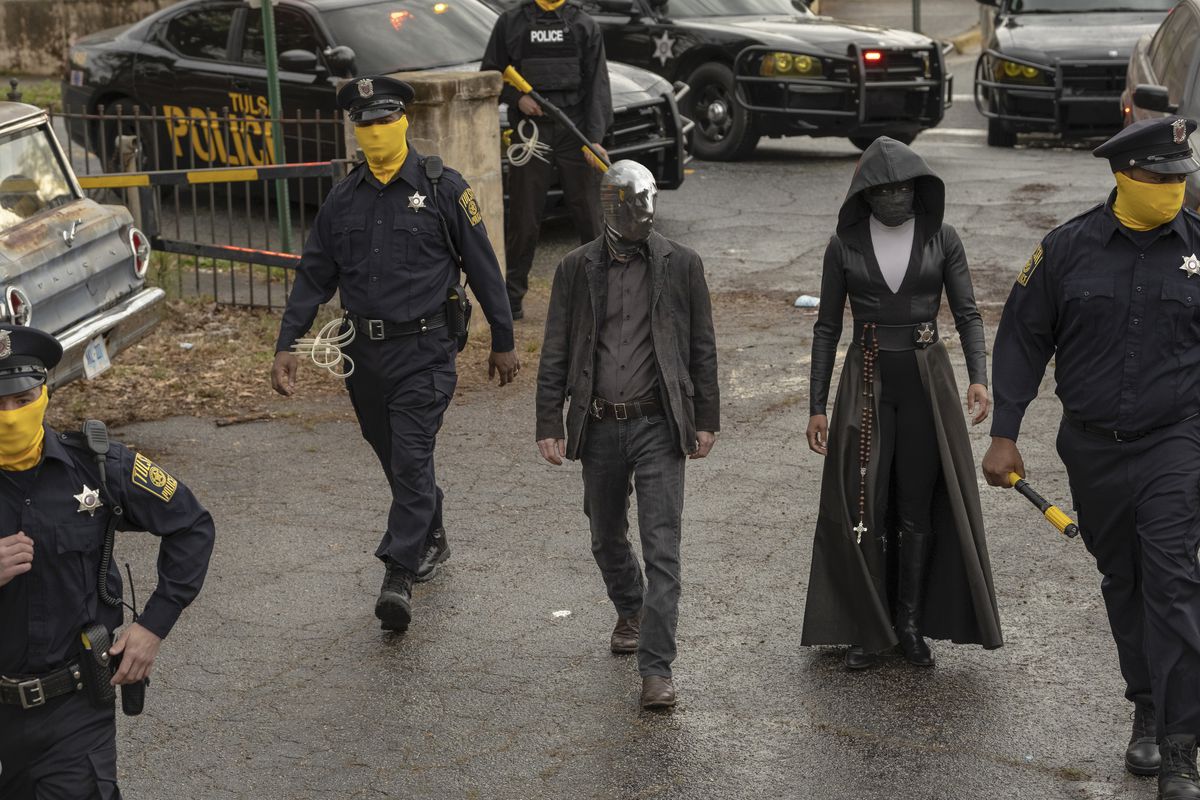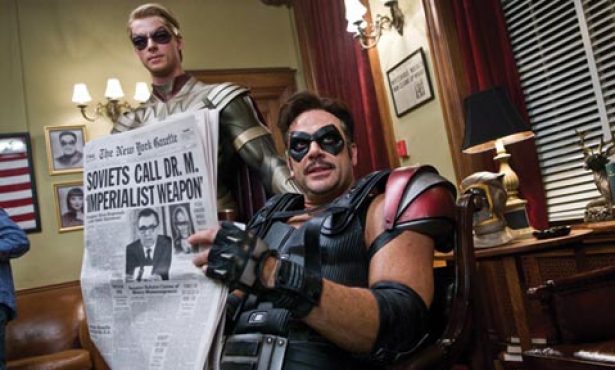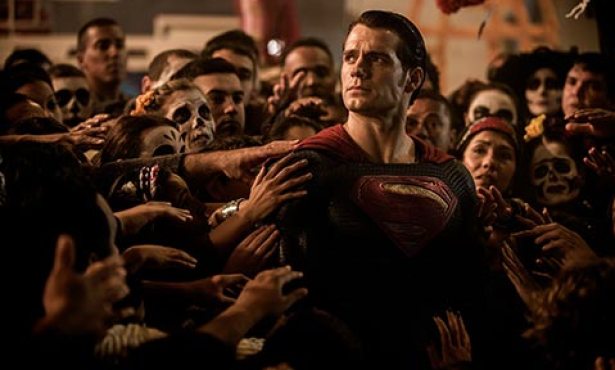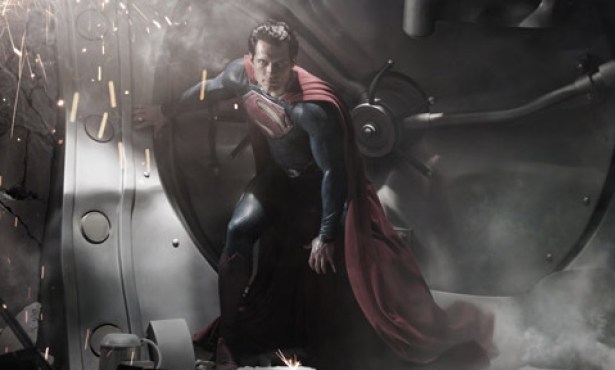Review | ‘Watchmen’: Bizarre World Is Hauntingly Familiar
Daring Dramatization of America’s Blighted Political Present

Serializing Watchmen for HBO offered showrunner Damon Lindelof and his cowriters ample opportunity to lose their way. Lindelof is no stranger to twisty, ever-expanding, extra-dimensional fantasy worldbuilding, but that doesn’t mean he always knows how to navigate his way through and back effectively. After what many dedicated fans viewed as an unsatisfying close to his breakthrough series Lost, wariness for plot holes, loose ends, and arbitrary storytelling have dogged the Lindelof brand. Devotees of the 1980s Alan Moore comic watched with bated breath as Lindelof took the reins of the Watchmen IP, fearing a renewed bastardization of their cherished lore after Zack Snyder’s regrettable 2009 film adaptation.
No one was expecting what Lindelof was to do with the material. His Watchmen is neither strictly an adaptation nor a sequel. It most closely resembles an extremely expensive piece of fanfiction, picking up threads from the comics, innuendos and possibilities not yet fully explored, while extending the world to include new characters and scenarios. Although generous with flashbacks and nonlinear narrative structures, the show mainly takes place in the present day, which is about 30 years after the events of the comic books. Vietnam is the 51st state, and Robert Redford is the president (yes, that Robert Redford). This alternate America has made amends for some very real tragedies. Ancestral victims of racial violence, such as the descendants of the Japanese Americans interned during World War II, are eligible for a tax exemption, known colloquially as “Redfordations.” So too are the descendants of those involved in the 1921 massacre of “Black Wall Street” in Tulsa, Oklahoma, and it is on this site of true-life domestic terrorism that the series opens.
Trauma courses through the marrow of the show. The traumas of individuals, families, and even nations pass from generation to generation as the due inheritance of a cruel and violent world so closely resembling our own. These historical and genetic strains intersect in Angela Abar, a character original to Lindelof’s update and played by Regina King at her most athletic. A former cop, Abar metes out her own style of justice under a hood and mask in the persona of “Sister Night.”
She’s not the only one going incognito, though. The masks are standard operating procedure for all law enforcement officers. With the good guys and the bad guys all hiding their faces, FBI Agent Laurie Blake (Jean Smart) makes it her mission to sort out who is who. She’s the child of two masked heroes and wore one herself as Silk Spectre in the original comics. Now, she’s a pulpy, wisecracking noirish detective, bringing a level of grounded police procedural to a show otherwise risking to go off the rails and freefall from a cliff for nine episodes.
Squid fall from the sky; infants grow in ponds; memories are encapsulated in pills; white supremacists are advanced nuclear physicists; and there’s an elephant in the room that no one talks about. How all these things and many more connect is impossible to lay out in a short article, and the joy of the show is in the slow-drip reveal of its multitudinous connections. Watchmen succeeds at the level of surprise. It clobbers its audience with absurdist twists that excite rather than confuse, and as the series progresses, the payoffs start cashing in.
Lindelof and his team have helmed one of the most daring, outlandish-yet-nuanced dramatizations of America’s blighted political present so far put to television. As bizarrely as the world of Watchmen unfolds, it is always hauntingly familiar, and that is perhaps what is most alarming. Watchmen may be full of masked heroes and supervillains, but it’s our country’s own fraught history and dubious morality that grinds the gears.
Watchmen streams on HBO.



